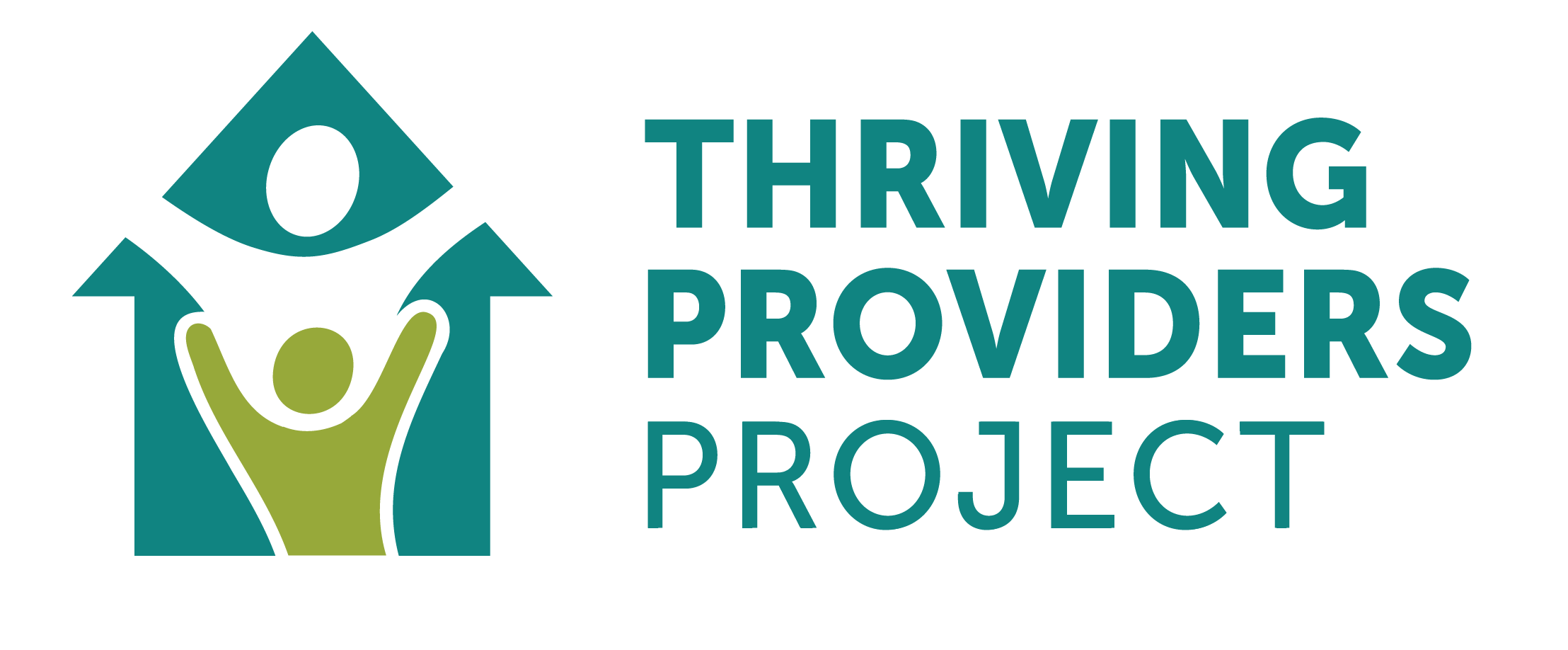By: Dr. Callie Silver, Stanford Center on Early Childhood
November 2023 marked the one-year anniversary for both implementation cohorts of the Thriving Providers Project (TPP) in Colorado. The first pilot of this national initiative began in Colorado with 100 home-based child care providers throughout the state receiving $500 monthly for 18 months, in addition to psychological and peer support services. Of the 100 TPP participants, 55 consented to participate in the evaluation, completing brief monthly surveys. Since the beginning of TPP, the Stanford Center on Early Childhood (SCEC) engaged in a mixed-methods, multi-informant evaluation grounded in the principles of rapid-cycle continuous improvement and participatory research. With the passing of the one-year milestone, we can now look at a full 12 months of evaluation data from the first TPP participants in the nation.
We are thrilled to share the first TPP evaluation brief report, which summarizes and highlights key findings from the past year, based on both quantitative and qualitative data. To date, we’ve learned from our TPP participants that:
- Cash is reducing income volatility and increasing providers’ ability to cover some basic needs. Yet for participants, even with DCT, material hardships still exist. This makes sense given the complexity of providers’ environments and points to the need for long-term, large-scale solutions for early childhood compensation and payment mechanisms.
- Cash affords providers resources to increase quality (e.g., engagement activities) and engage in training. Future work can investigate patterns of responsive care and pursuit of training over time.
- Increased connection and trust with CBOs are a critical first step but, this preliminary data indicates it is not sufficient, alone, to increase provider use of public benefits. We will continue to learn from and support, using findings and data from TPP, the important advocacy work happening in CO to eliminate barriers to public benefit access for FFN providers.
- TPP providers’ experiences with cash reinforce the potential for positive impacts of policy shifts to stabilize the child care workforce. We are excited to see the 2024 changes to the Child Care Development Fund regulations that would require payment for services at the time of delivery and based on enrollment rather than attendance to child care providers. We know, and TPP data now also support, that stable cash reduces income volatility.
These learnings have given us insight into the lives of Colorado FFN providers, while also preparing us to bring TPP to new locations. As we look to a third cohort of TPP in Colorado and the launch of new cohorts in New York and Pennsylvania this spring, we are eager to continue monitoring these indicators. We are grateful for the collaboration and partnership of the provider participants, provider consultants, community-based organizations, and other key informants. This collaborative work exemplifies the SCEC mission of engaging in community-centered learning and evaluation and has played a critical role in our team’s evolution over the past year. We look forward to sharing the 18-month Colorado report later in 2024 and ongoing findings from other TPP sites.

